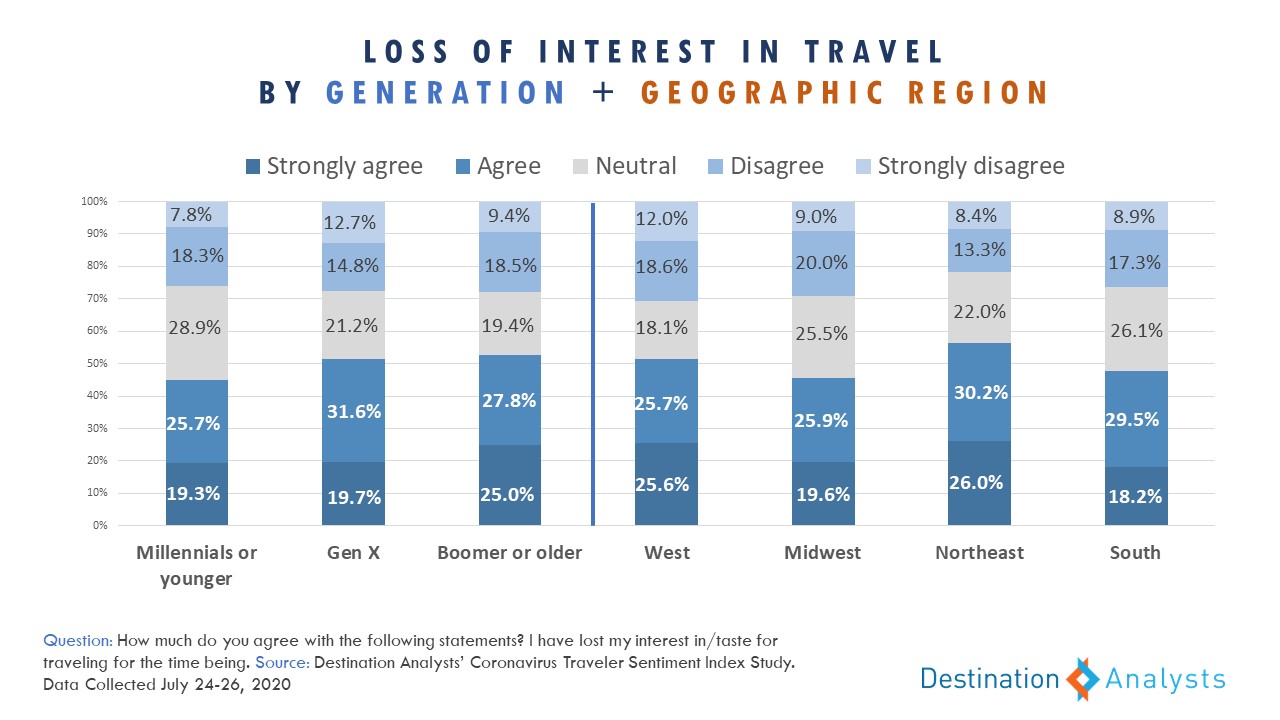Update on American Travel in the Period of Coronavirus—Week of July 27th
Travel Sentiment and Pandemic Etiquette Improved Somewhat this Week, but the Stress is Putting Americans in a Travel Funk.
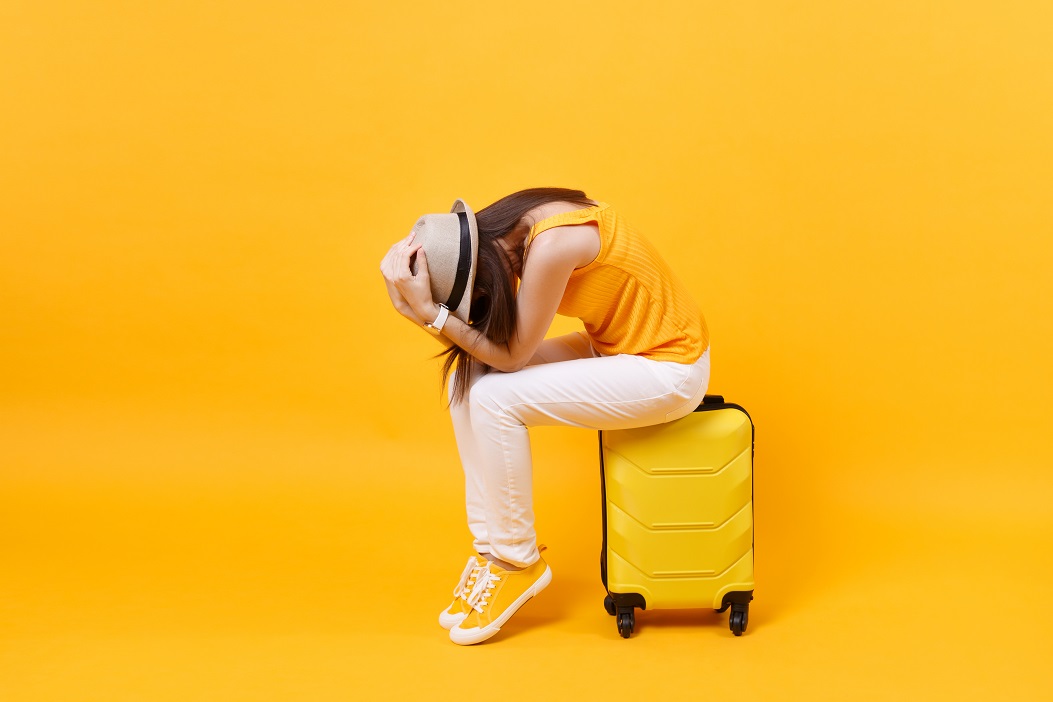
IMPORTANT: These findings are brought to you from our independent research, which is not sponsored, conducted or influenced by any advertising or marketing agency. Every week since March 15th, Destination Analysts has surveyed 1,200+ American travelers about their thoughts, feelings, perceptions and behaviors surrounding travel in the wake of the coronavirus pandemic, and explored a variety of topics. The findings presented below represent data collected July 24th-26th.
Key Findings to Know:
- A few important travel metrics positively increased this week: excitement for near-term travel, openness to travel inspiration, and the number who say they will take a trip in 2020.
- 18.2% of American travelers anticipate their next road will be in August.
- The profile of those that recently traveled by air skews younger, urban dwellers that typically traveled for business and conventions in the pre-pandemic period.
- Those that have recently traveled by air largely rate their experience with the health and safety protocols implemented by their airline and the airports as satisfactory.
- More Americans are now agreeing with pandemic etiquette and say they will practice it when traveling, including wearing a face mask.
- Nevertheless, the marked stress Americans are feeling during the pandemic remains a parasite on travel morale.
- Overall, half of American travelers agree they have lost their taste for travel for the time being—a feeling more pronounced in Baby Boomers and those in the West and Northeast.
Despite 61.5% of American travelers feeling that the pandemic will worsen in the US over the next month, there was positive improvement in some travel sentiment metrics this week. Higher excitement levels for near-term travel increased to 47.9% from 41.1%, and greater degrees of openness to travel inspiration grew to 45.2% from 36.6%. Now 55.4% say they have at least tentative trip plans for the remainder of 2020, up from 53.3%. Looking at the anticipated timing of their next trips, 18.2% of American travelers expect they may take their next road in August.
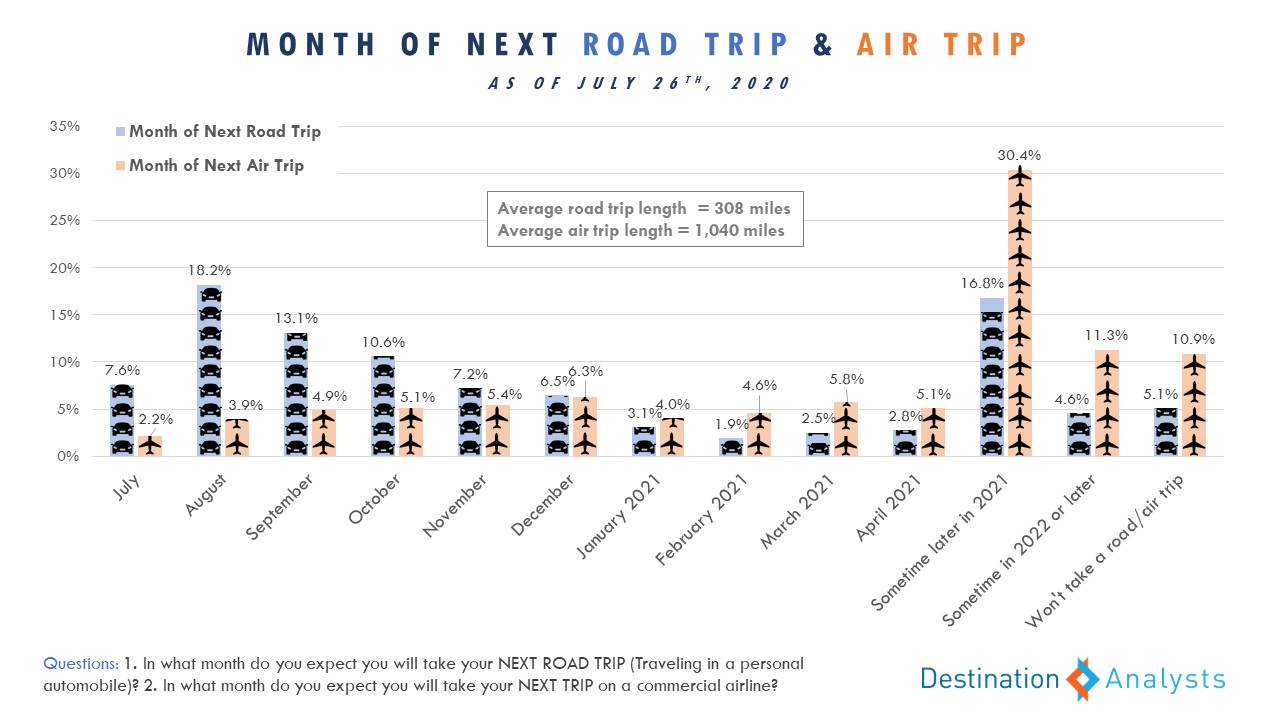
While the majority of Americans report taking their next trip by air in 2021, those that have recently traveled by air (11.3%) largely rate their experience from a health and safety protocol standpoint as positive. Three-quarters of these recent air travelers said they were satisfied with the coronavirus safety protocols put in place by the airline(s) and 73.0% felt satisfied by those protocols instituted by the airport(s). The profile of those that recently traveled by air skews younger, urban dwellers that typically traveled for business and conventions in the pre-pandemic period.
More Americans are now agreeing with pandemic etiquette. This week, 80.6% of American travelers agreed people should wear face masks in public, up from 77.6% last week, and 87.9% up are being careful to socially distance, up from 85.6%. The reported frequency of mask wearing has also increased.
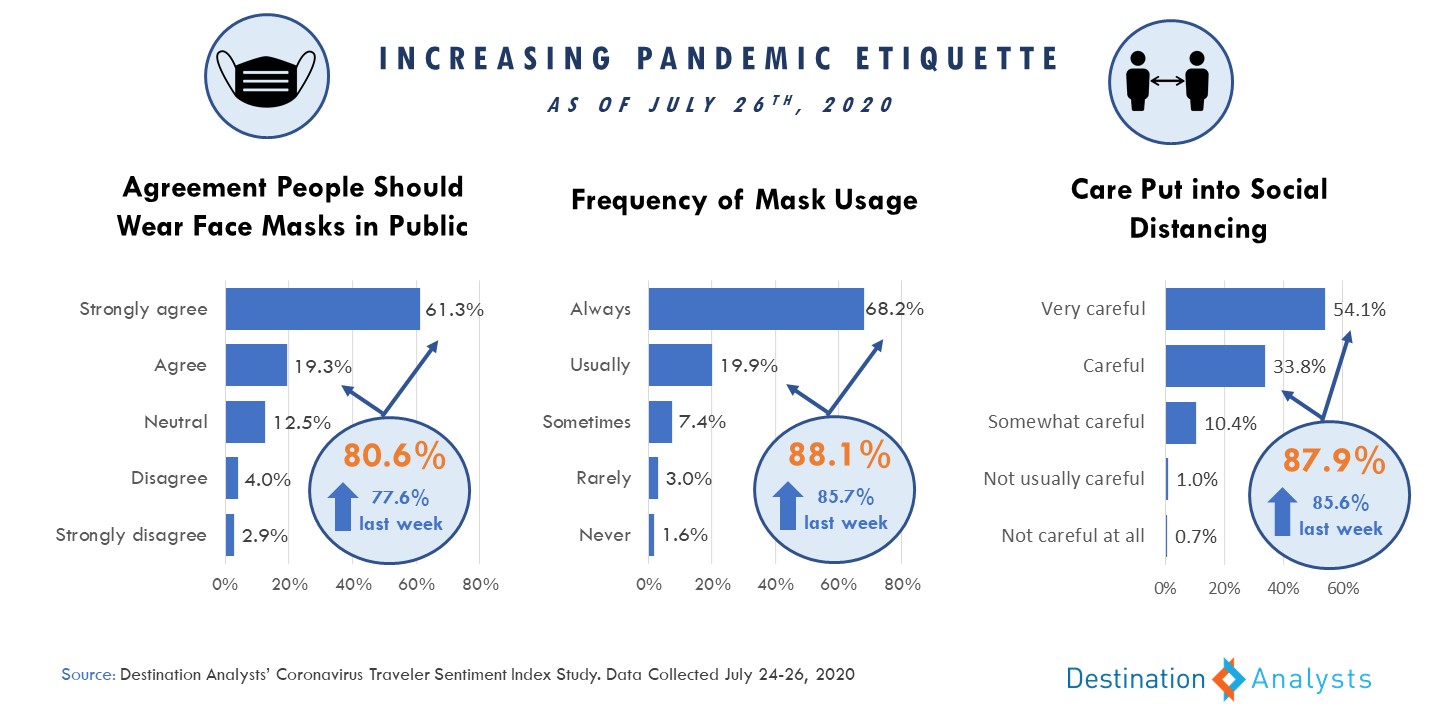
Americans also increasingly say they will practice pandemic etiquette when traveling over the next six months, including wearing a face mask and following social distancing guidelines.
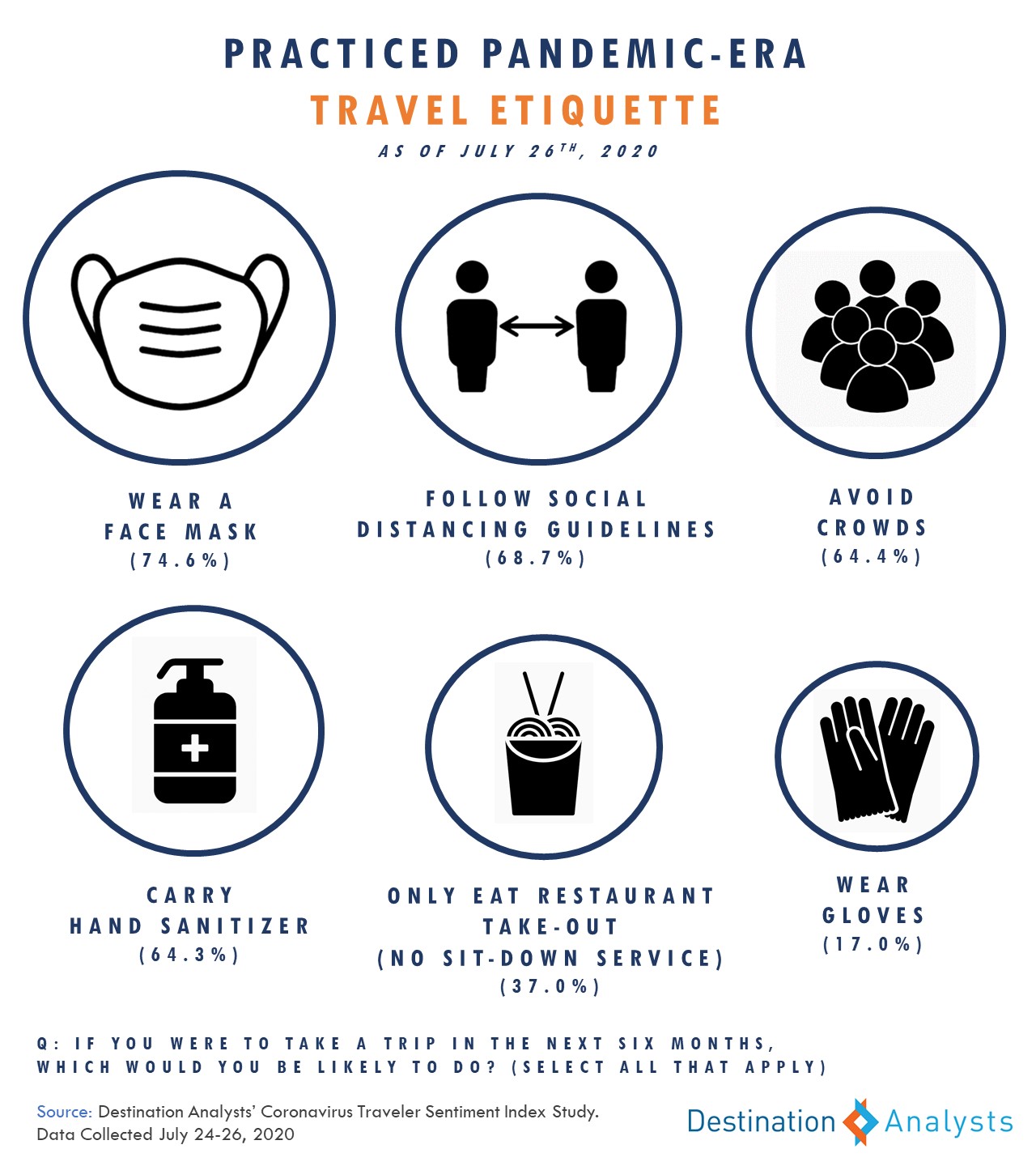
Nevertheless, Americans feel marked stress from the pandemic. Overall, 44.8% report higher degrees of daily stress right now. Millennials seem to be absorbing this stress in more areas of their lives compared to older generations, being likelier to say they have felt lonely, sad, bored, easily upset, and worn out in the last month. This stress is a parasite on travel morale. Six in ten American travelers agree that if they were to travel now for leisure, they would not be able to fully enjoy it and half agree they have lost their interest in or taste for traveling for the time being.
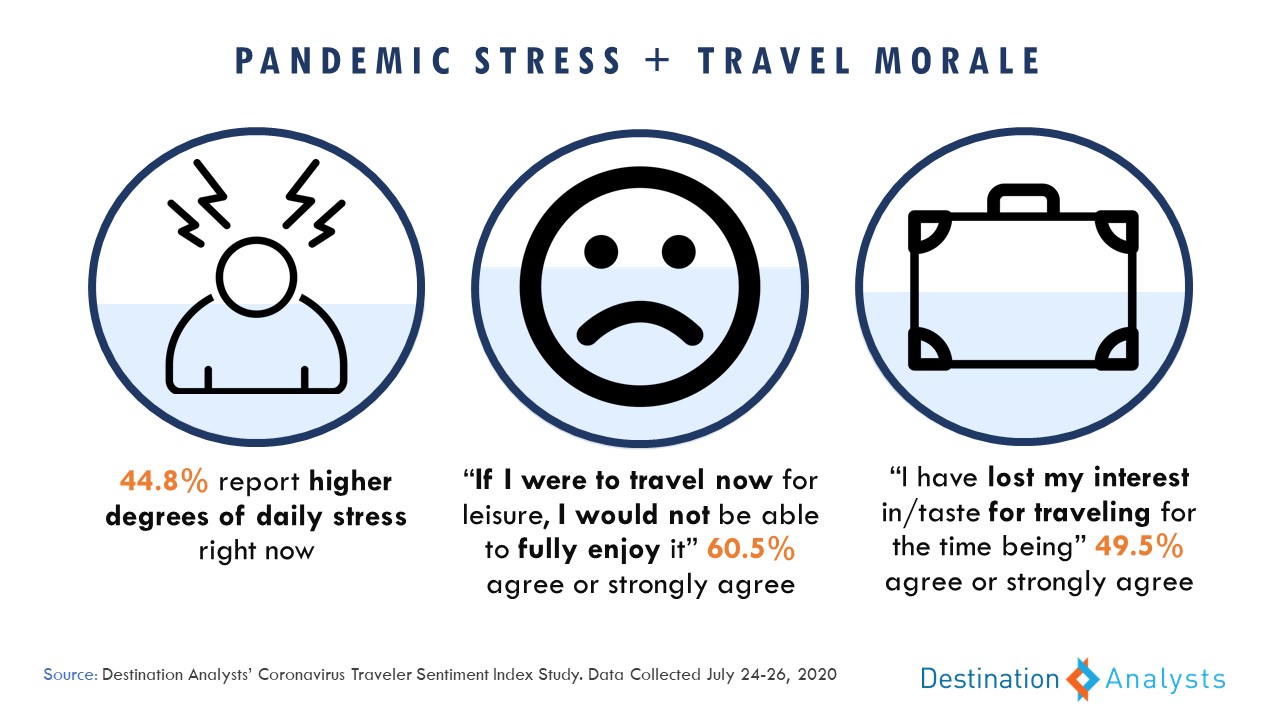
This (hopefully temporary) loss of a taste for traveling is somewhat more pronounced in Baby Boomers and travelers residing in the Western and Northeastern U.S.
